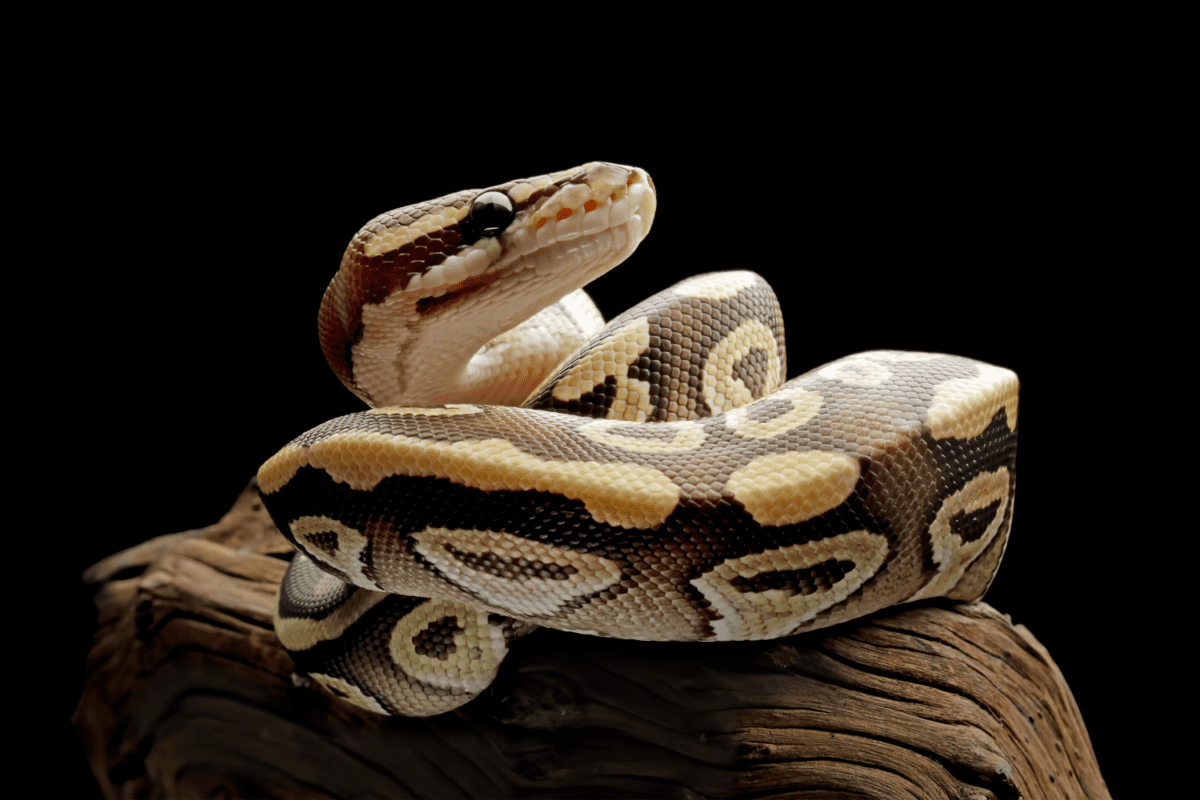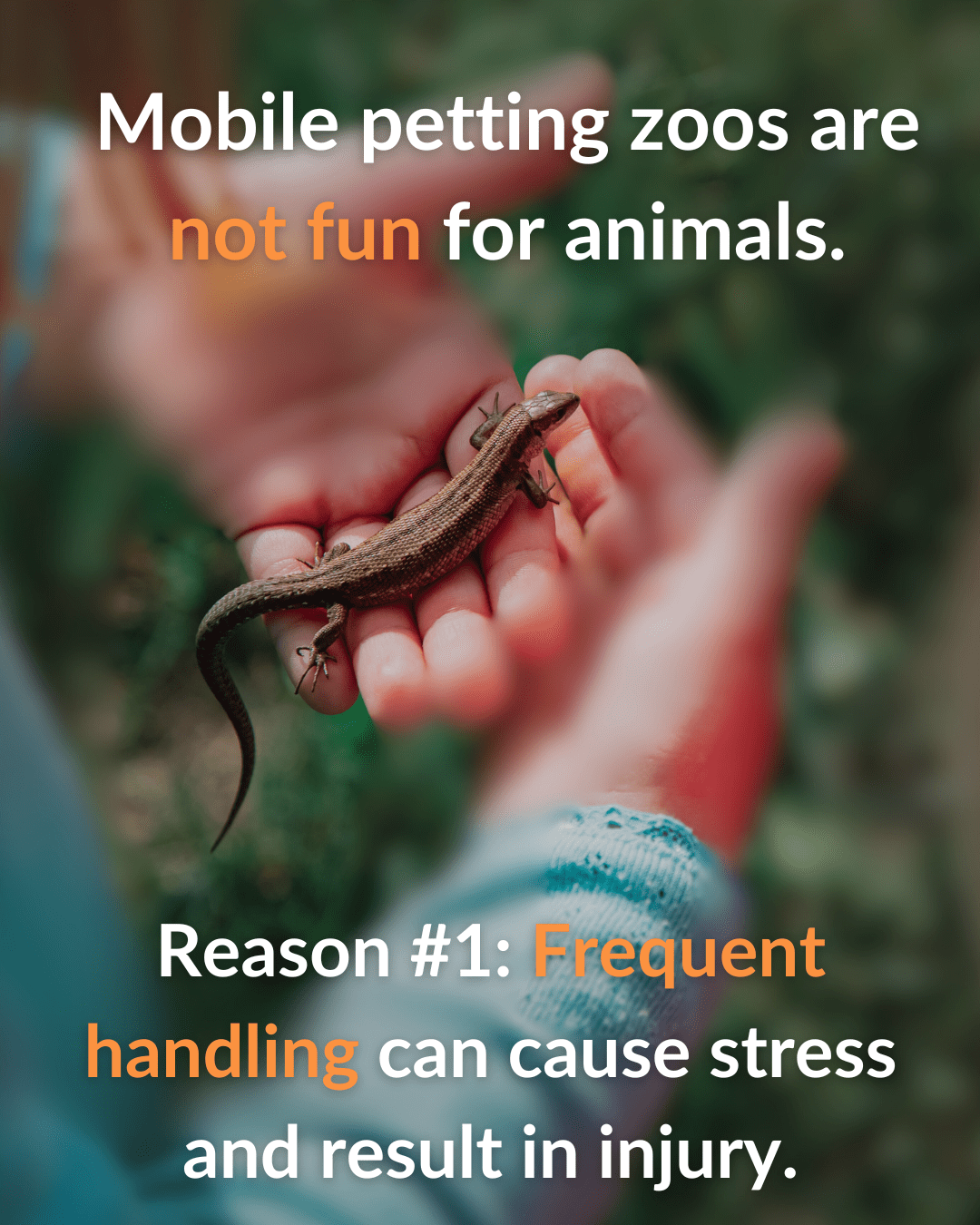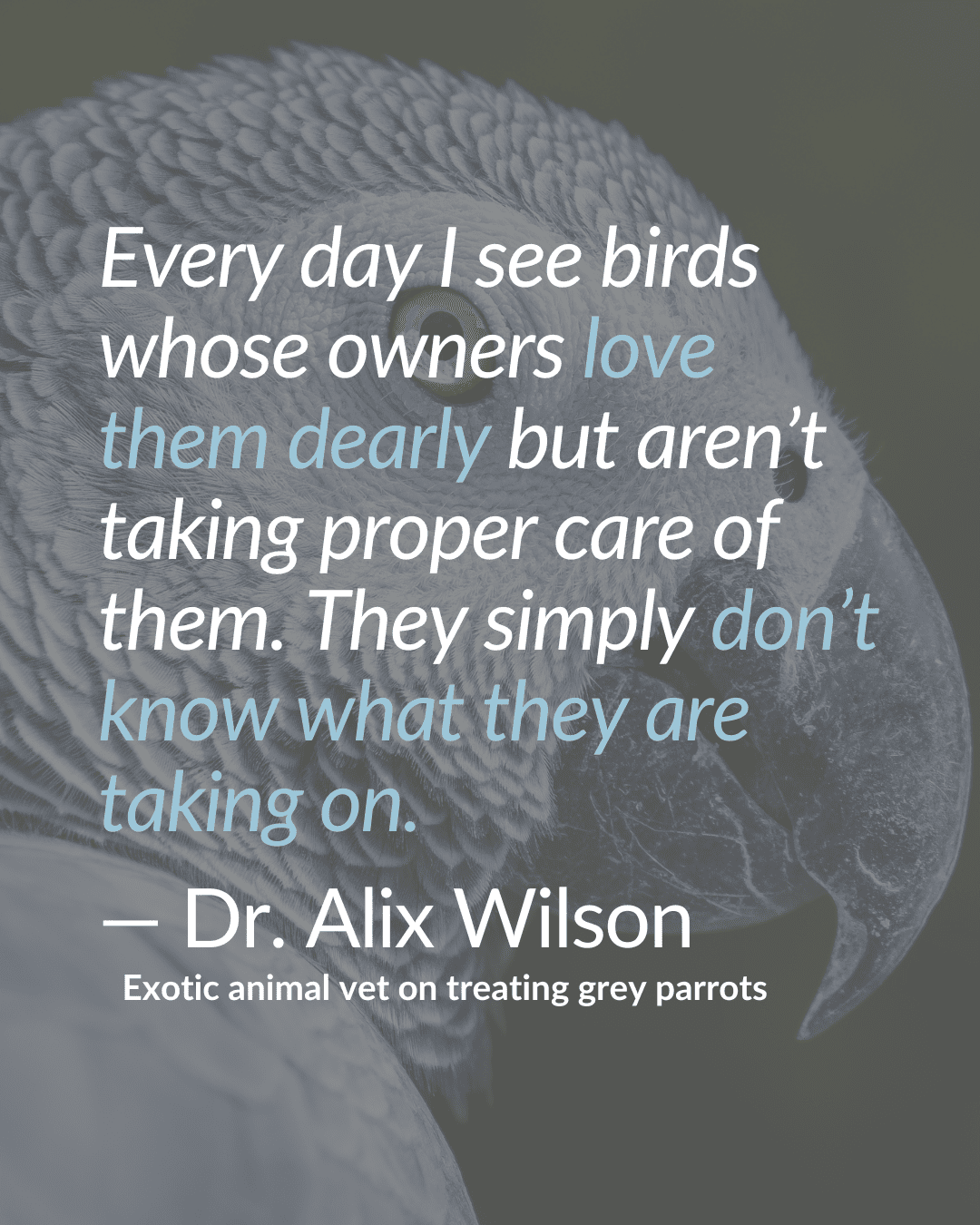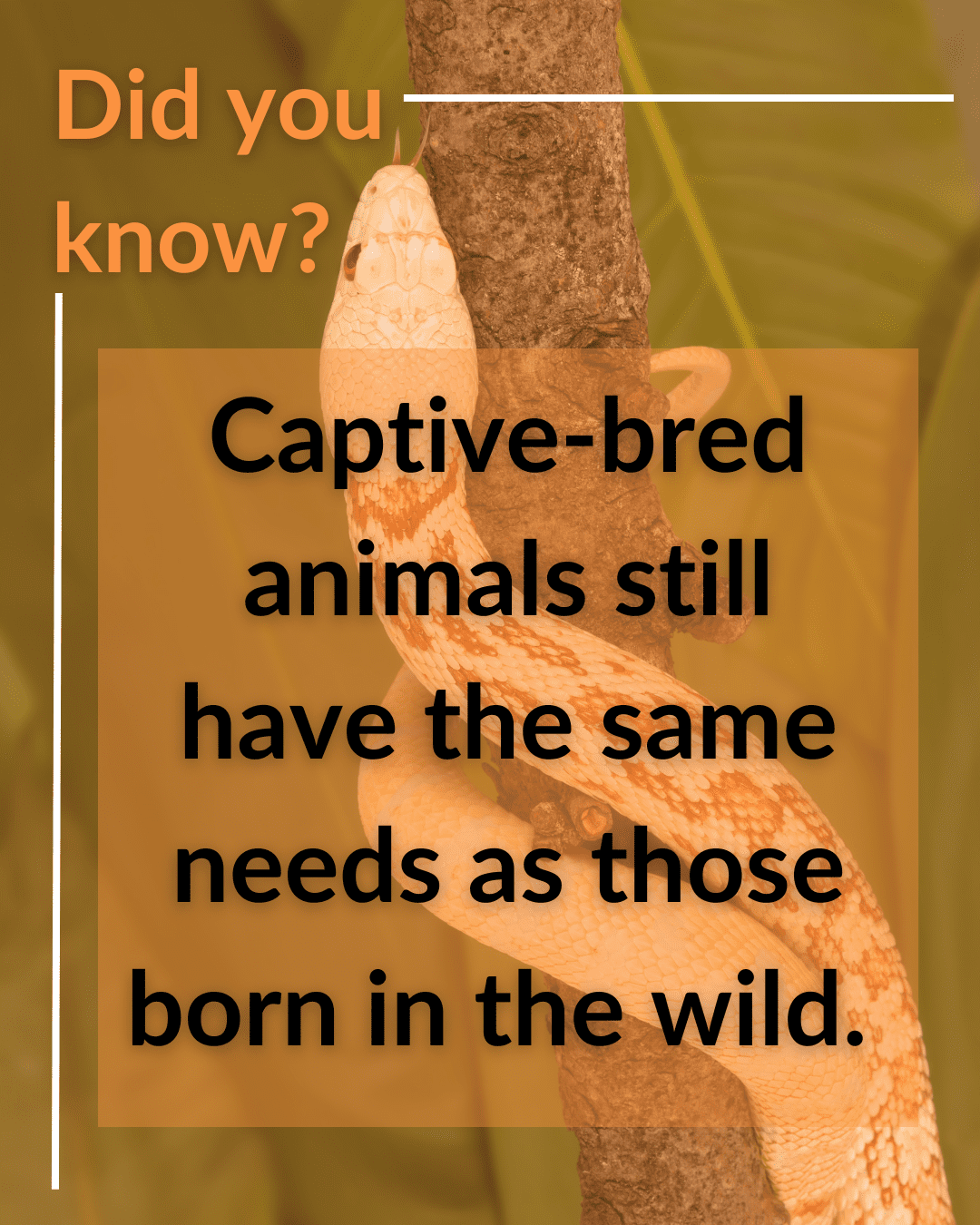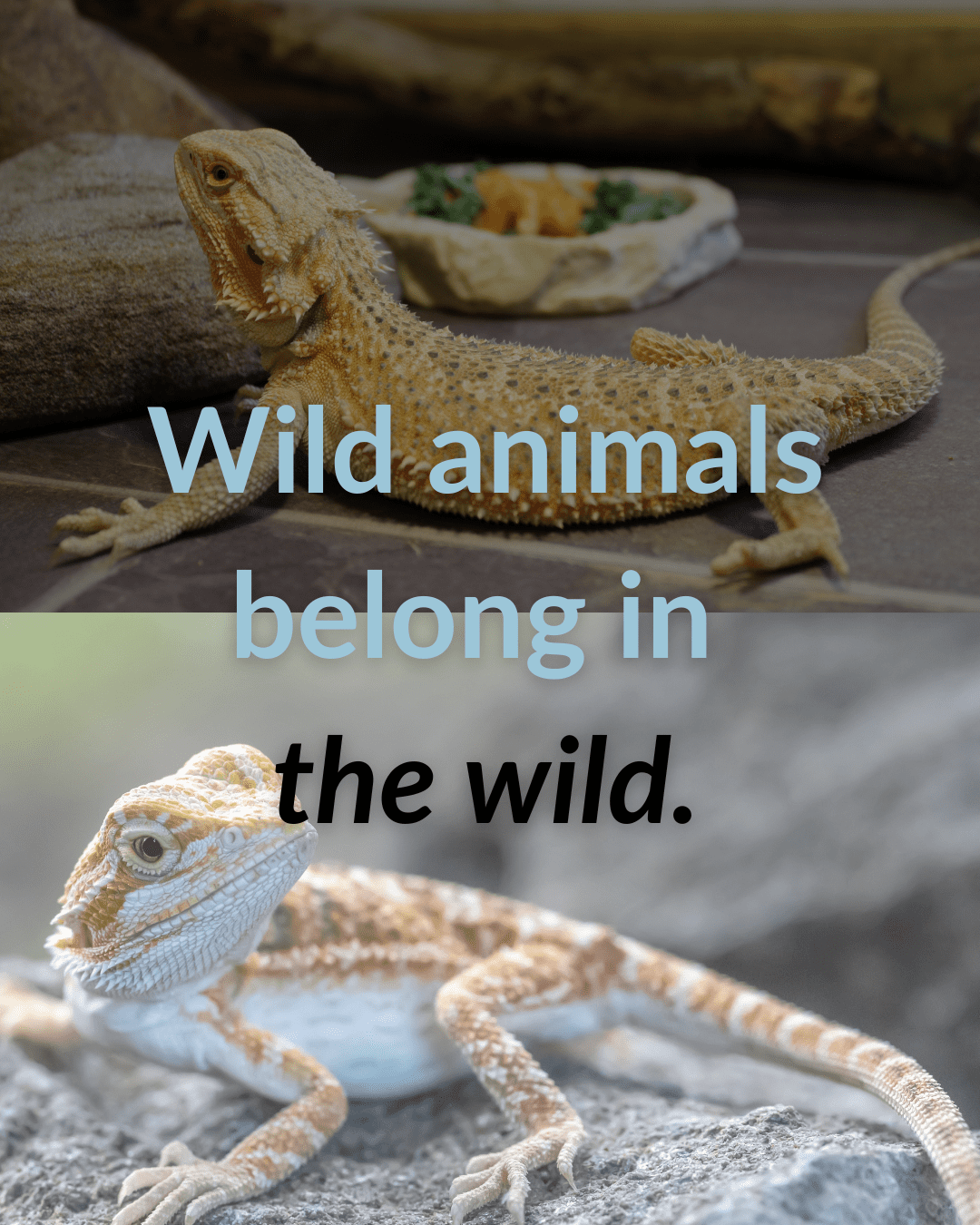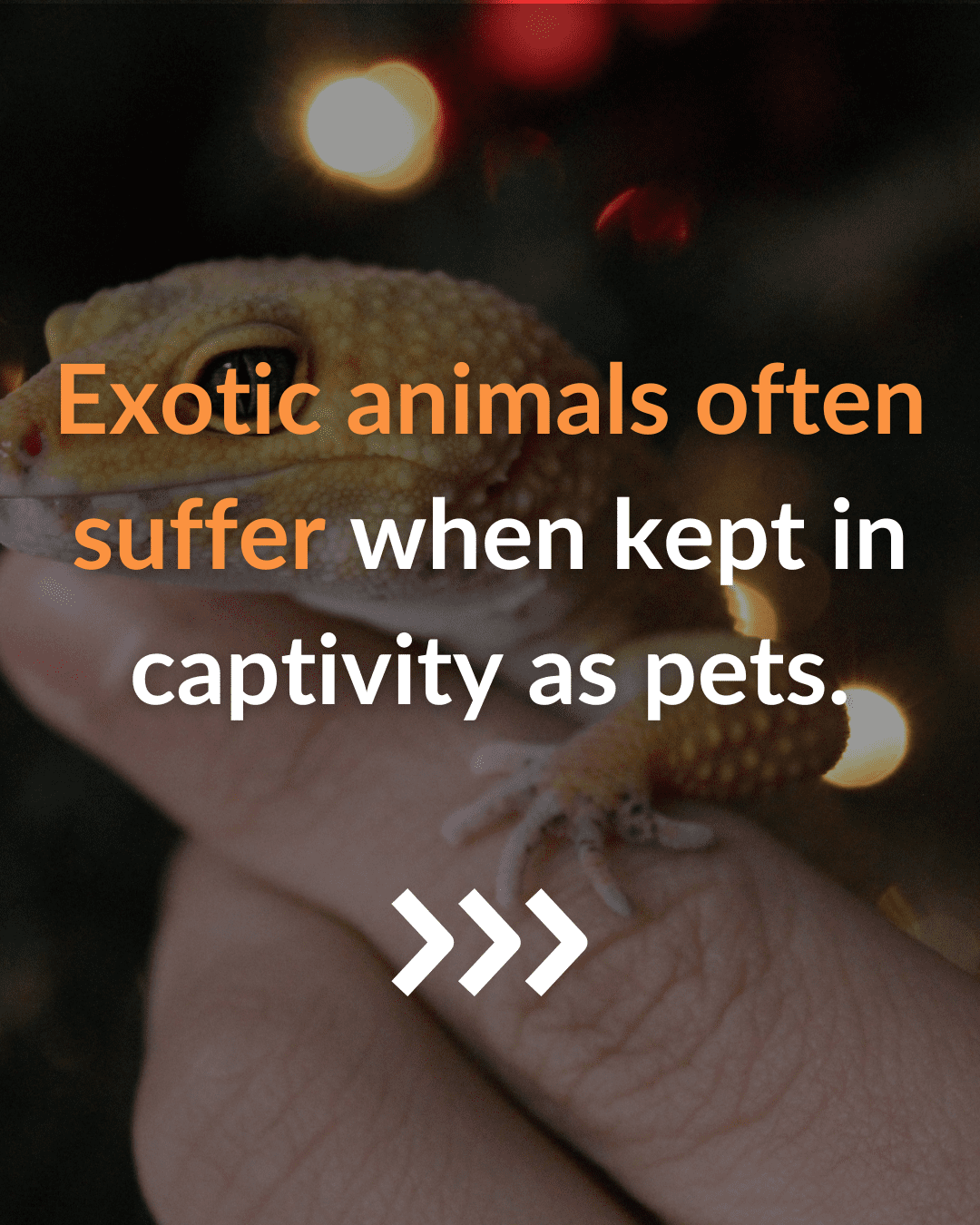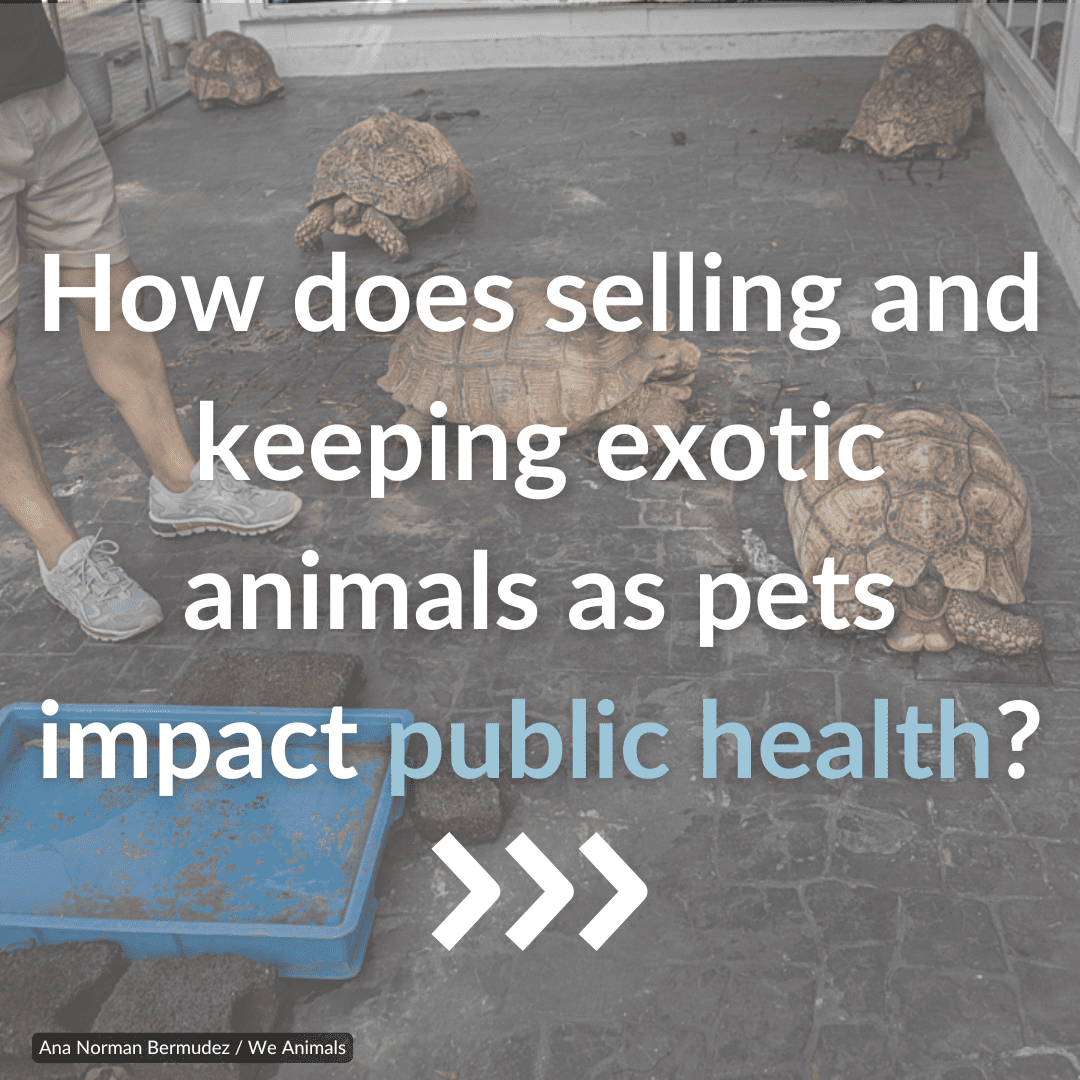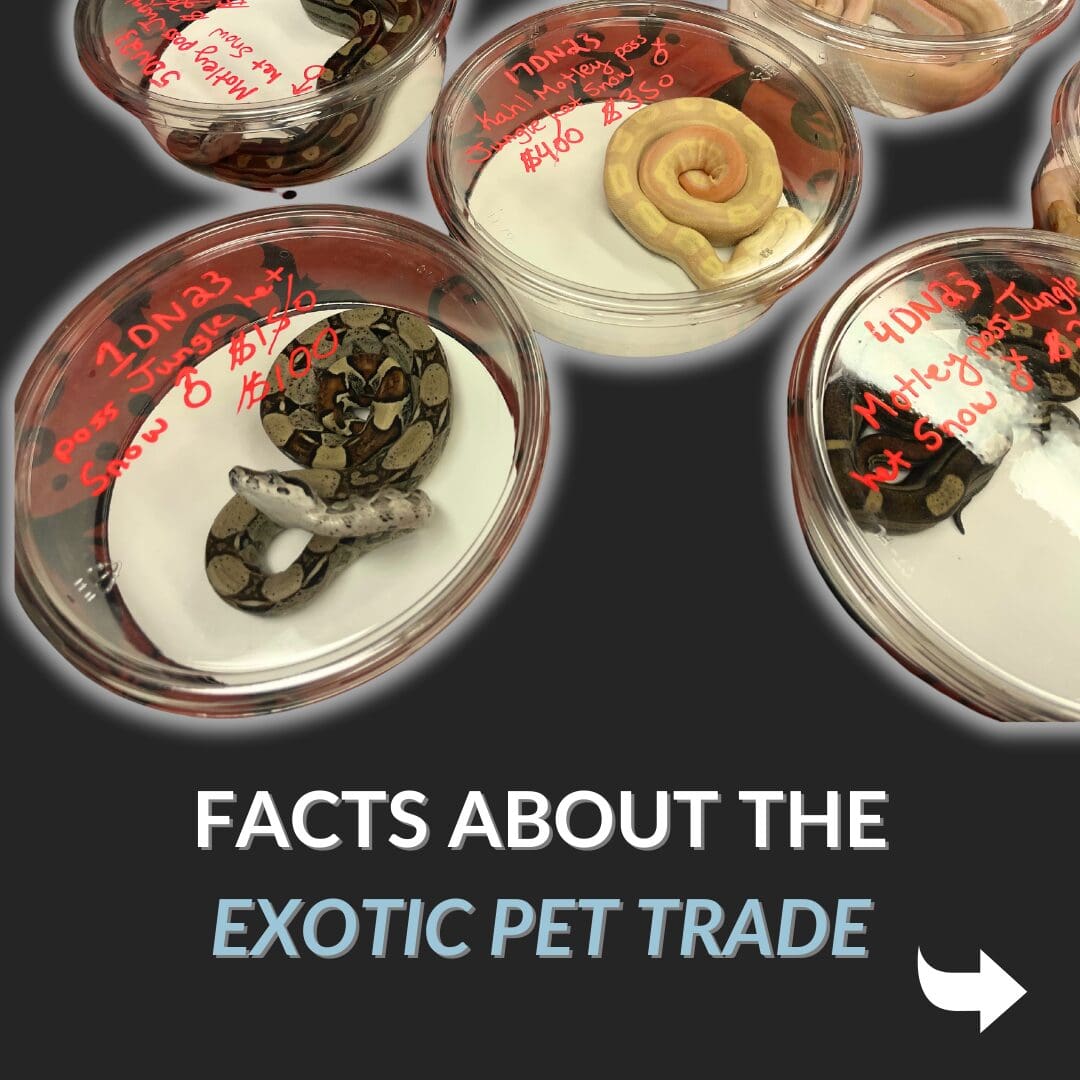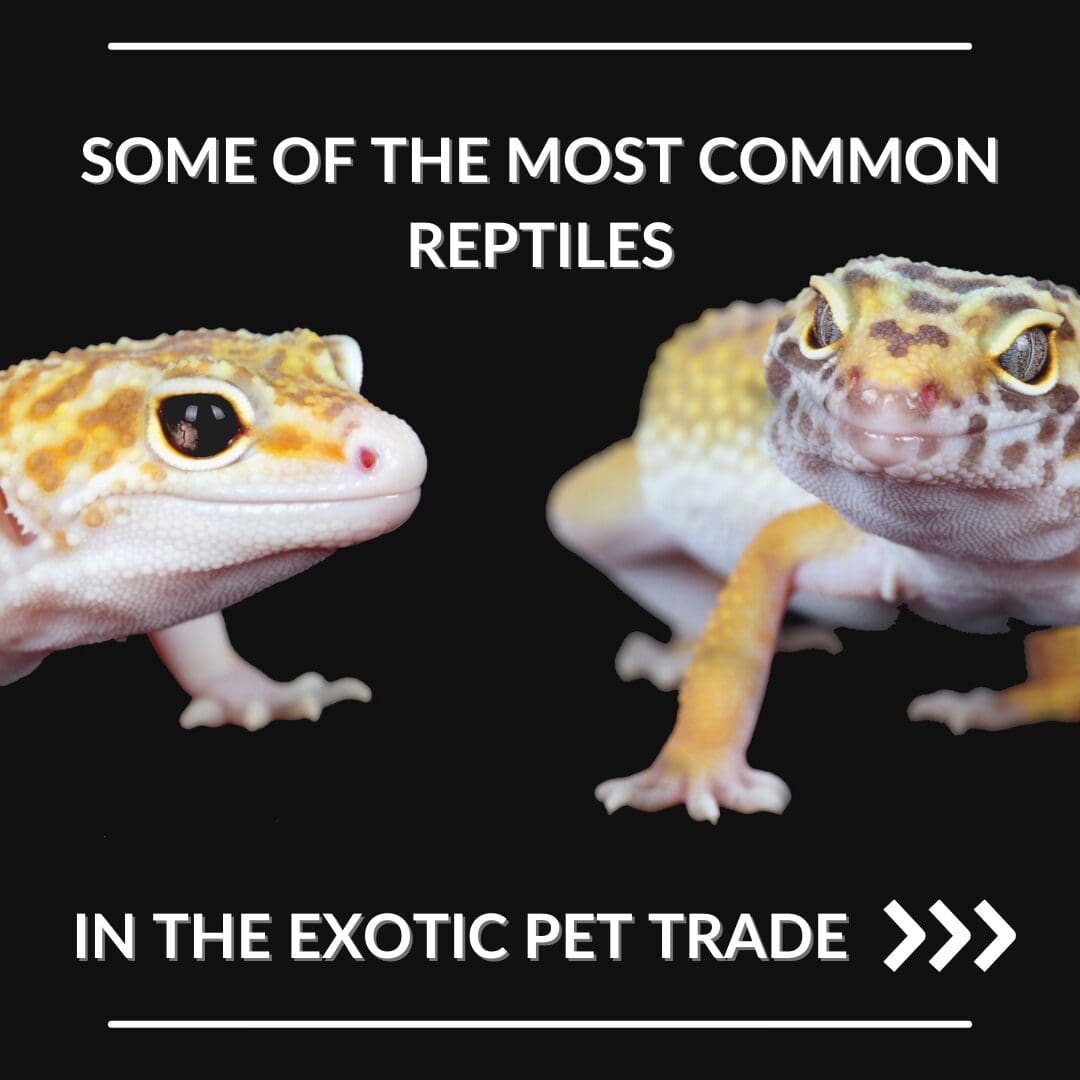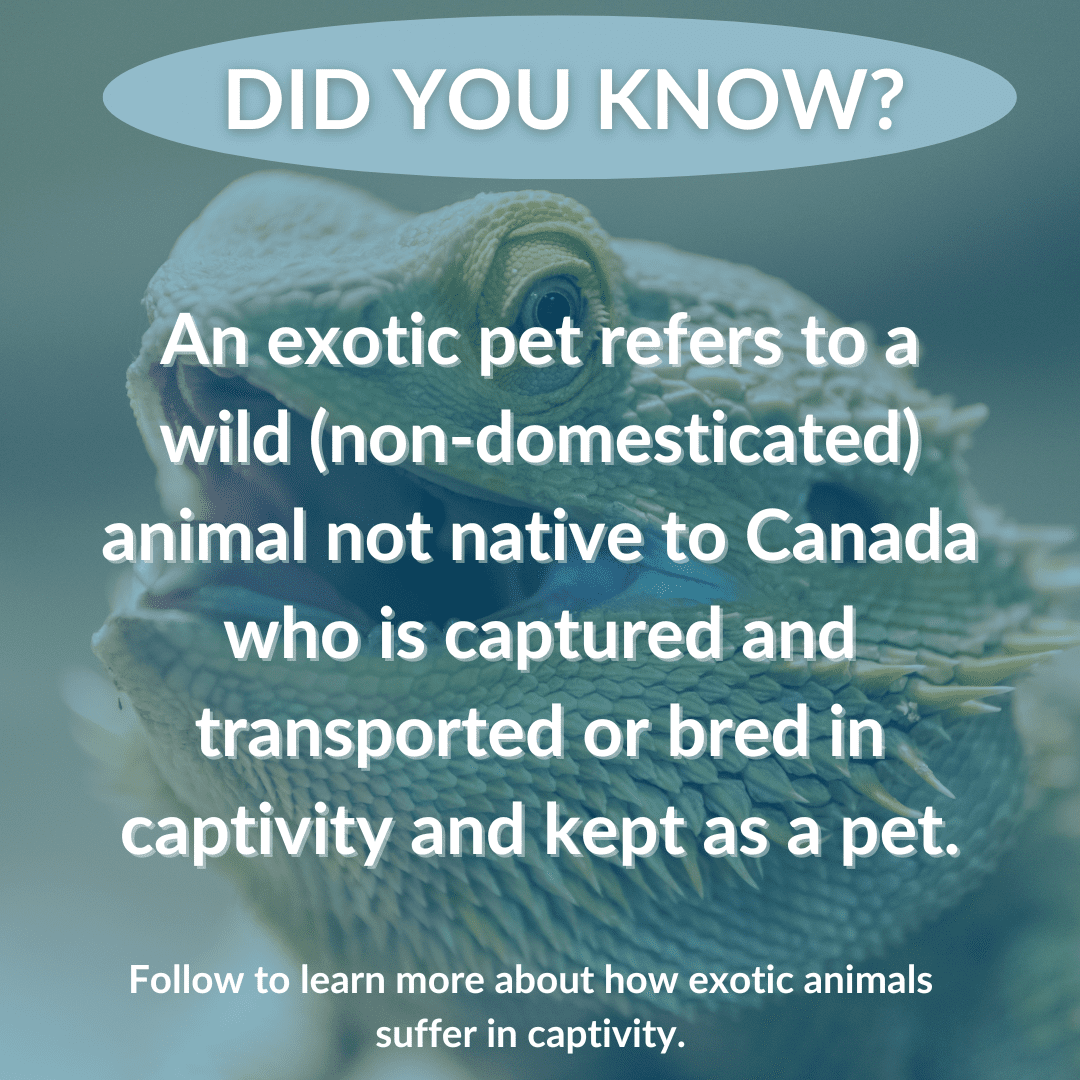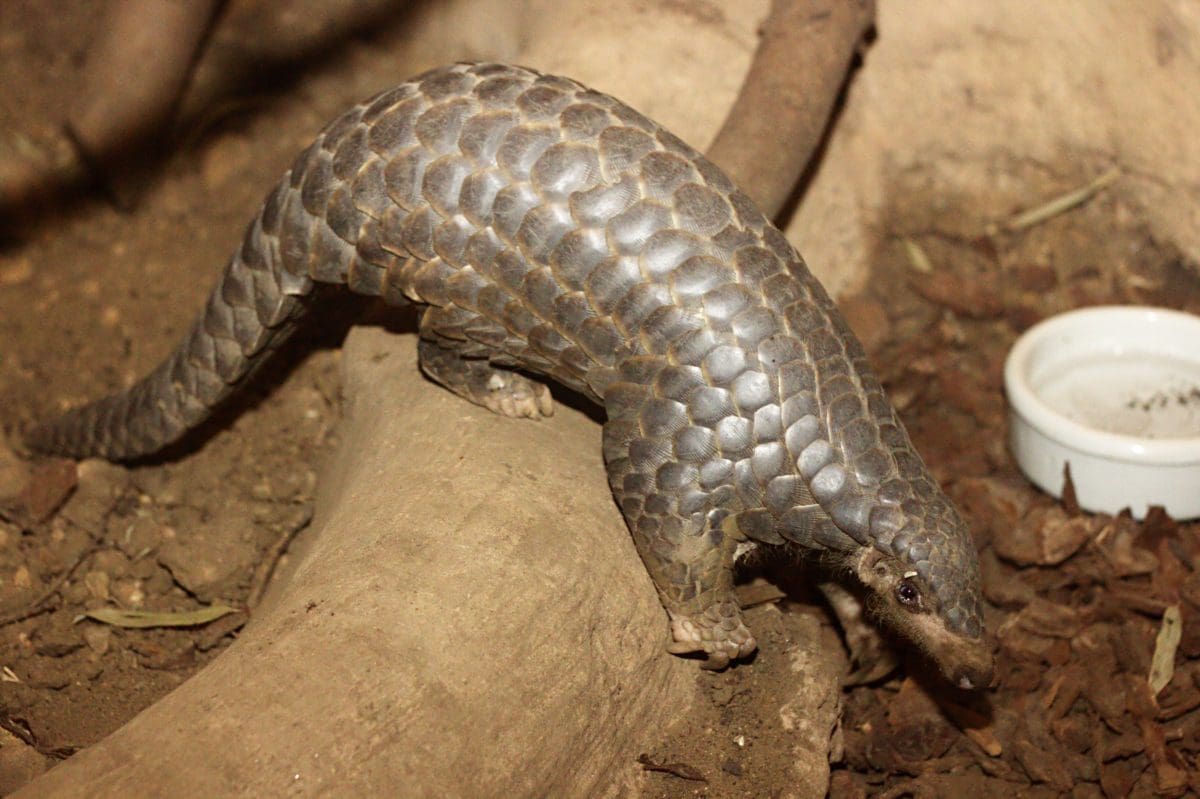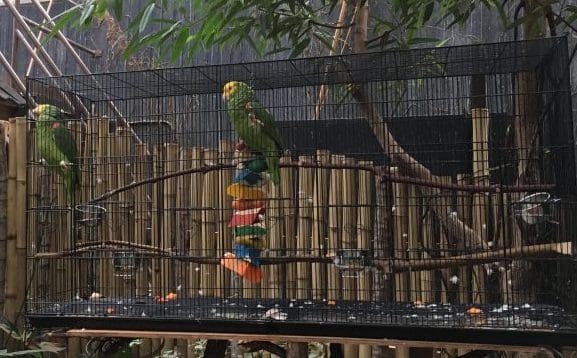- Exotic, non-domesticated animals are being caught, bred, and sold across Canada as part of the inhumane and risky wildlife trade.
- These animals are then kept as pets, sold commercially, and used at events.
- Captive environments cannot replicate exotic wild animals’ natural habitats, leading to welfare concerns.
- The wildlife trade poses a risk to wild animal populations both at home and abroad due to poaching of animals for the pet trade and release of exotic animals into the local ecosystems.
Can you take action to speak up for wild exotic animals caught, bred, and sold in the wildlife trade?
Select the image to go to the post.
Issues with captive exotic animals
It’s estimated that 1.4 million exotic animals (non-domesticated, non-native animals) are kept as pets across Canada. This includes species like ball pythons, bearded dragons, red ear slider turtles, savannah cats, and crested geckos. Across the Canadian provinces and territories, British Columbia comes in fourth for exotic pet ownership.
Exotic animals may be:
- kept as pets in people’s homes;
- bred and sold commercially; or
- used for public display or entertainment at events.
Welfare concerns
Regardless of whether these animals are wild-caught or captive-bred, they retain their complex social, physiological, and behavioural needs that they would have in the wild.
This makes it impossible to fully meet their unique needs when kept captive as pets, which can lead to significant animal welfare issues and suffering.
Public health risks
The exotic pet trade also poses public health and safety risks.
Stressed animals are more susceptible to disease and to spreading disease to humans. In fact, 75% of emerging infectious diseases are zoonotic (transmitted from non-human animals to humans).
Impact on wild animal populations
The exotic pet trade is also a major threat to wild populations, as a result of the poaching of wild animals to be sold into the pet trade.
The accidental or intentional release of exotic animals into the wild can also have a negative impact on native species and local ecosystems.
Exotic pet events
Exotic pet events, where animals are on display for public entertainment or are being sold, highlight many of the animal welfare, public health, and safety issues associated with the exotic pet trade. These wild animals are:
- kept in cramped and unnatural containers;
- transported to and from events; and
- handled by adults and children in a noisy environment.
Will you help stop the suffering by signing up to receive action alerts? You will be contacted with key actions to help protect exotic animals.

